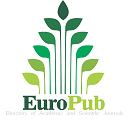Pemberian Anti-Myostatin pada Induk Serta Keragaman Gen Myostatin dan Asosiasinya terhadap Potongan Karkas Anak Ayam Sentul (F1)
Abstract
Myostatin (MSTN), a member of the transforming growth factor β (TGF-β) superfamily, is a negative regulator of skeletal muscle growth. Improving muscle growth is very important to increase the economic value of Indonesian indigenous chicken especially in sentul chicken. This study was aimed to identify the polymorphism of the Myostatin gene in sentul indonesian indigenous chicken with maternal immunization against Myostatin on post hatch and to evaluate its effect on carcass traits. In this study, 48 Sentul hens for up to 6 months have been divided into three groups with 16 birds in each group: CON, KLH, and KLH-MSTN. The CON group has not received immunization, the KLH group has been immunized with 1 mg of KLH, and KLH-MSTN has been immunized with 1 mg of KLH-MSTN conjugate intramuscularly. The effects of each group have been observed on F1 carcass production.The gene polymorphism was identified using PCR-RFLP and the effect of genotype on carcass chacteristics were analyzed using SAS General Linear Model Procedure. The product of amplification was 247 bp. This locus was polymorphic in sentul chicken with two alleles (G and T) and three genotypes (GG, GT, TT). Association analysis were not significant in carcass characteristics. The result of this study showed that interaction of each group with genotype not significant on carcass weight of F1 chicken sentul each age group. F1 sentul chicken 12 week-old significant association of genotype was observed only in thighs weight while 20 week-old was significant in live weight, carcass weight, breast weight, wings weight, thighs weight, drum sticks weight, breast muscle weight, thighs muscle weight and drum sticks muscle weight. These results suggest that no effect genotype on maternal immunization against myostatin to stimulate carcass characteristic in sentul chickens.















